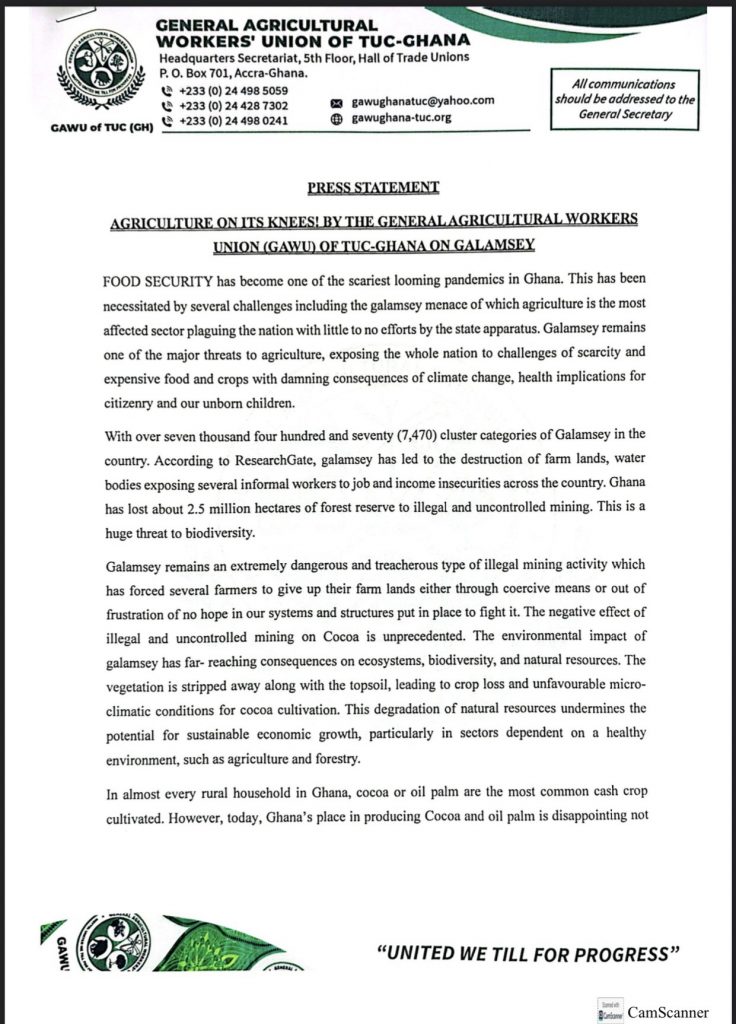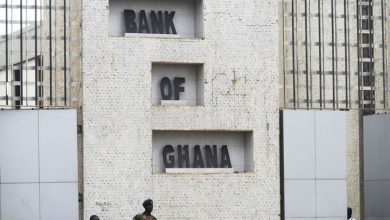
The General Agricultural Workers Union (GAWU) of the Trades Union Congress (TUC) has expressed serious concerns regarding the detrimental effects of illegal mining, commonly known as galamsey, on agricultural lands in Ghana.
In a press release dated September 16, GAWU emphasized that food security has become a pressing issue in the country, with galamsey significantly contributing to this crisis. Union members warned that Ghana could face a severe food shortage if this trend persists.
“Food security has become one of the most alarming crises in Ghana, exacerbated by the lack of effective intervention from the state,” the statement asserted.
GAWU pointed out that many farmers have been forced to abandon their lands, either due to coercion or frustration over ineffective measures to address the issue.
The statement described galamsey as an extremely hazardous form of illegal mining that has driven numerous farmers away from their fields, leading to both coercive actions and a sense of hopelessness regarding existing systems and structures aimed at combatting it.
The union highlighted the unprecedented negative impact of illegal mining on cocoa production, as well as its far-reaching consequences for ecosystems, biodiversity, and natural resources.
With over 7,470 reported instances of galamsey across the country, GAWU cited research indicating that illegal mining has destroyed farmland and water bodies, leaving many informal workers facing job and income insecurities.
The union’s concerns align with research findings on the impacts of galamsey on agricultural lands and livelihoods in Ghana, underscoring the urgent need for action to safeguard the nation’s food security and environmental health.





